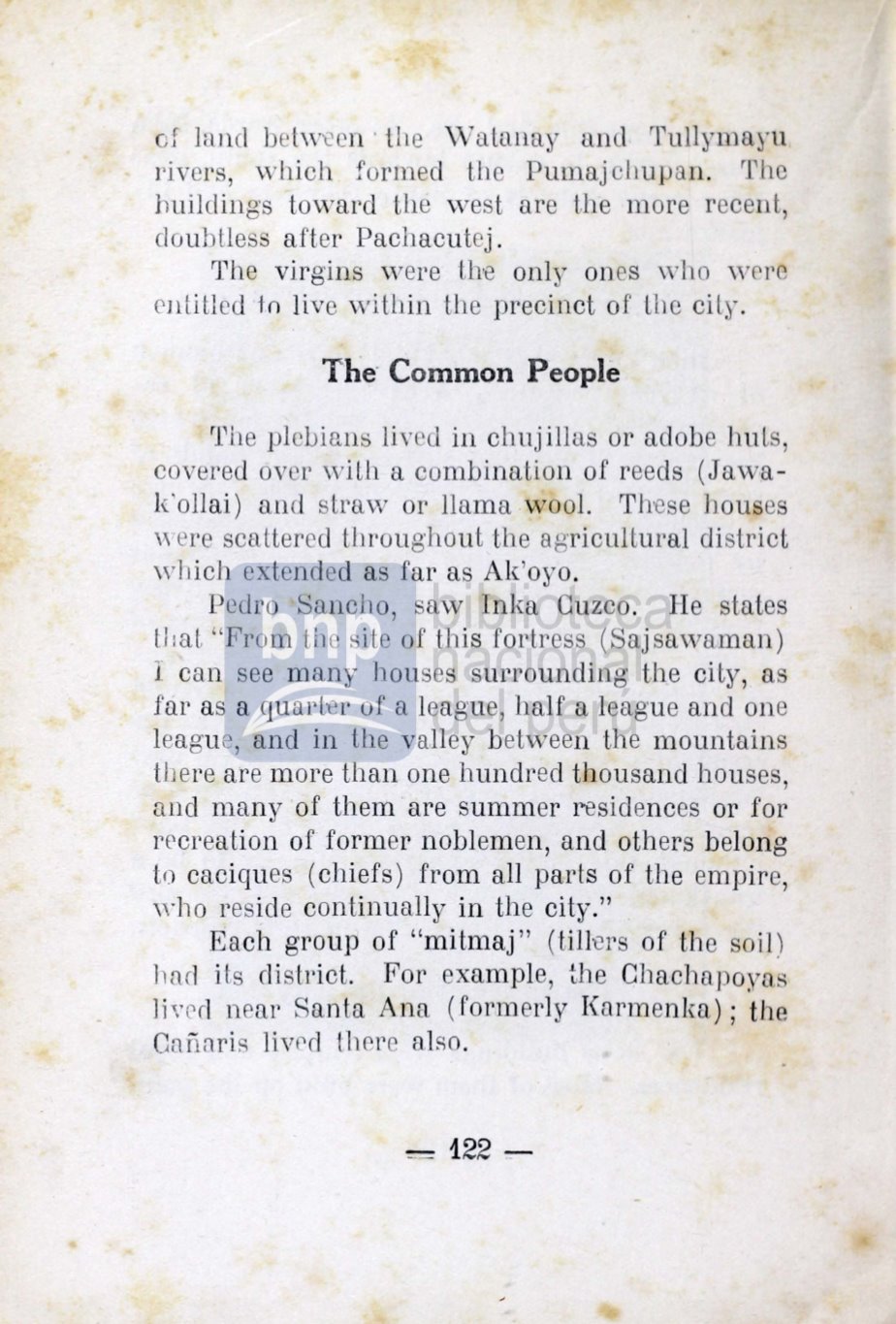

f
l·u1
1
J
h\
"~
n ·
the
\V
lun
·
n
l
'I'ullyn1 yn
ri'
r , vvhich rorn ed th Pu aj
huµ n. Th
huilclings
to~
1
ard
Lhe \vest
ar
the
n1ore
r ut
lou
tle
after Pachacutej.
Th virgins vvere
the
only on es \
' ho '
re
cn ti tled
tn
liv ' ·itlün
th precinct of Lhc cil. y.
The· Common People
The plebian s liv din chujillas or adob huLs
covered ov
r ' vith
a combination
of
reeds (Jawa–
k
ollai) and str aw or llama wool. These houses
}\ere scattered throughout the agricultural di strict
\vli icl extended as far as Ak'oyo.
Pedr
o,
arw
Inka Ouzc . I-Ie states
' t
of
t
1is fortr ess (Sajsawaman)
hous su rouiiding
the
city, a
far as a
a leag u-e, half a league and one
leagu , and in the val ey betVi"\ een t e mountain
t1
ere are more than one hundred thousand houses,
and many of them ·are sumn1er residences or for
r ecreation of former noblemen, and others belong
to caciques (chiefs) from all parts of the empir ,
\Yho r eside continually in the city.''
Each group of "mitmaj" (tillers of the soil)
1
a rl i s district. For example, the Chacha
J
O)
a
lh'f)d n ear Santa Ana (formerly Karmenka); the
Cnñn ris
livr d th e a.lso.
~
122
-:o-
















